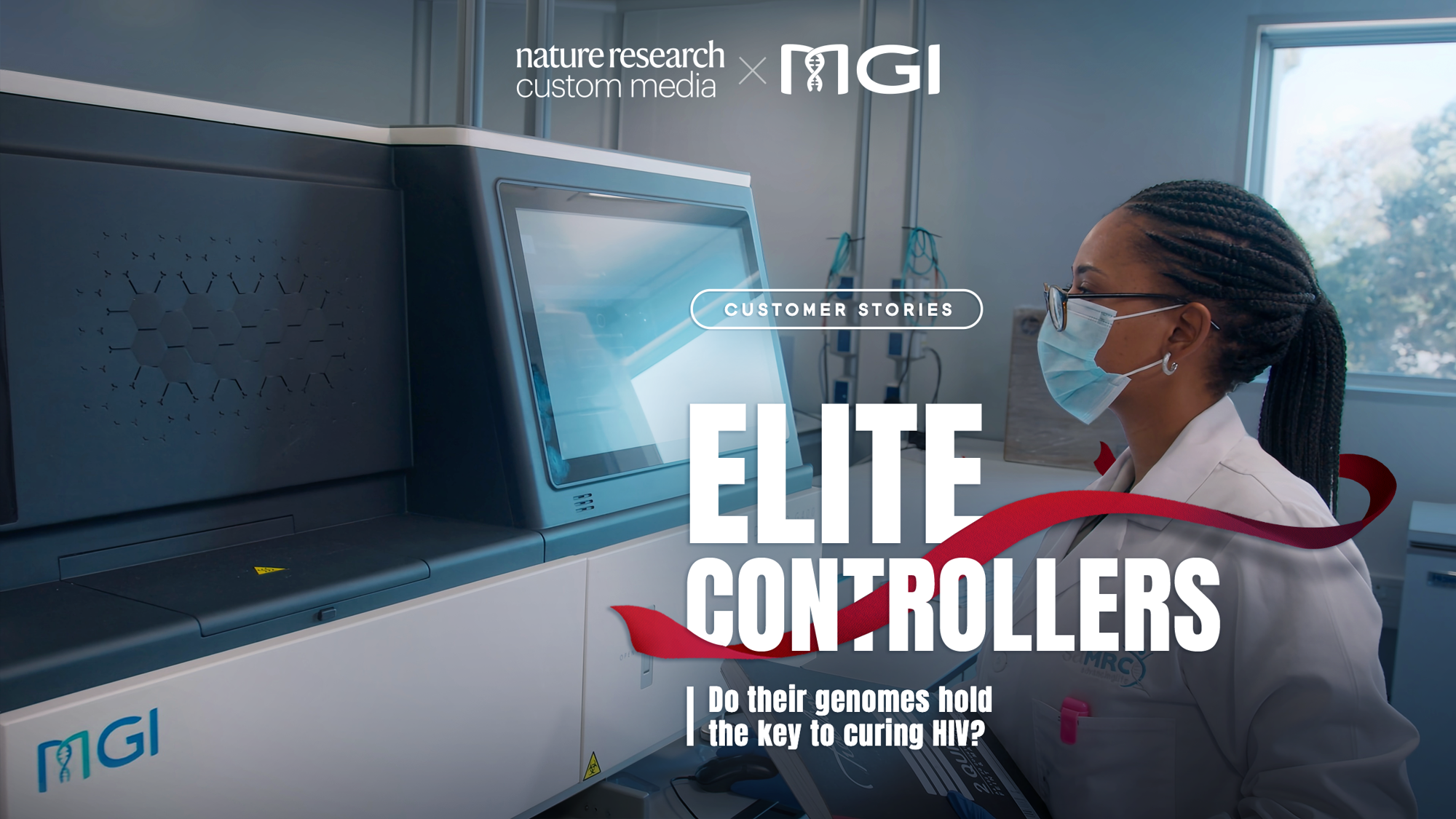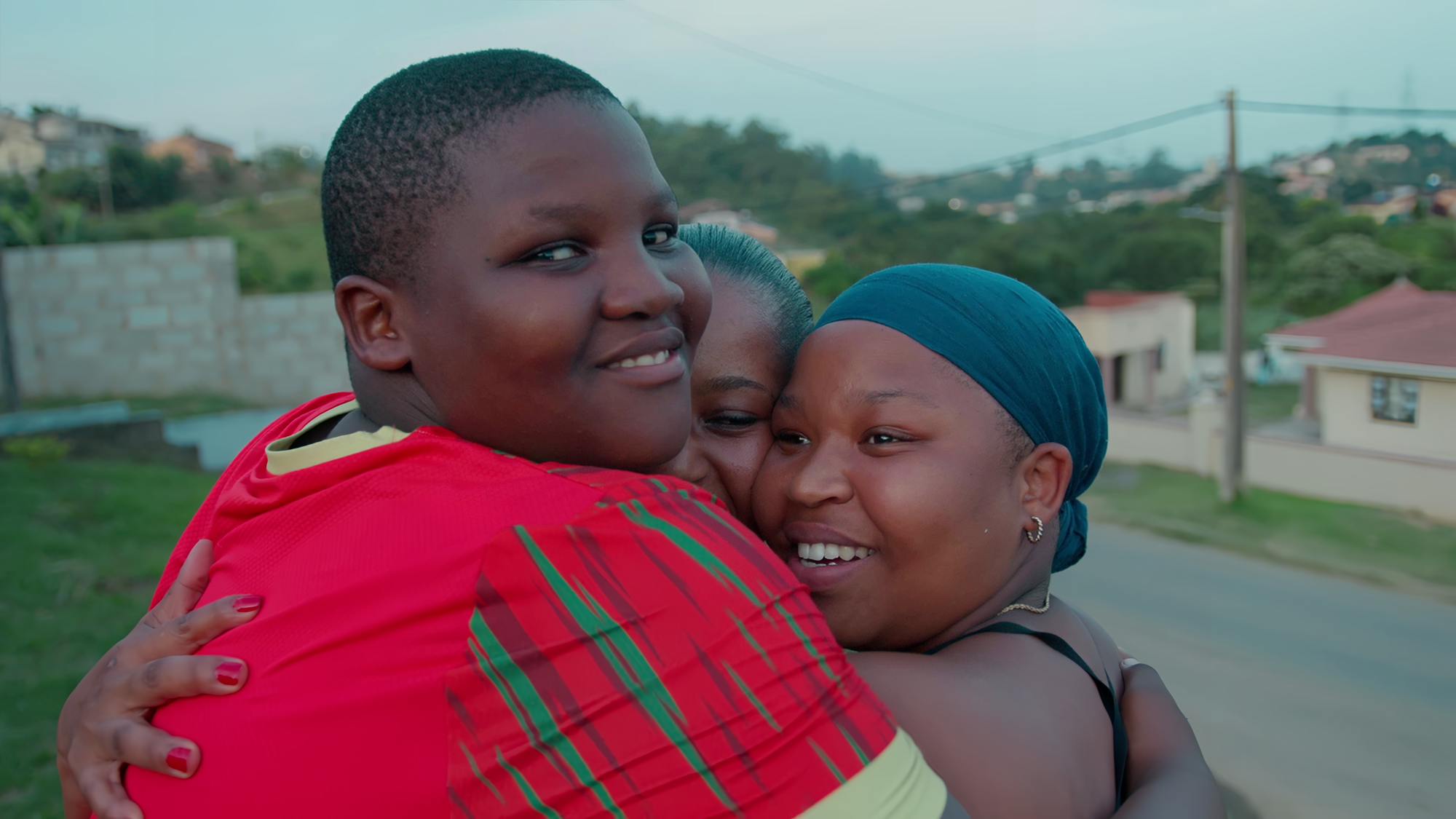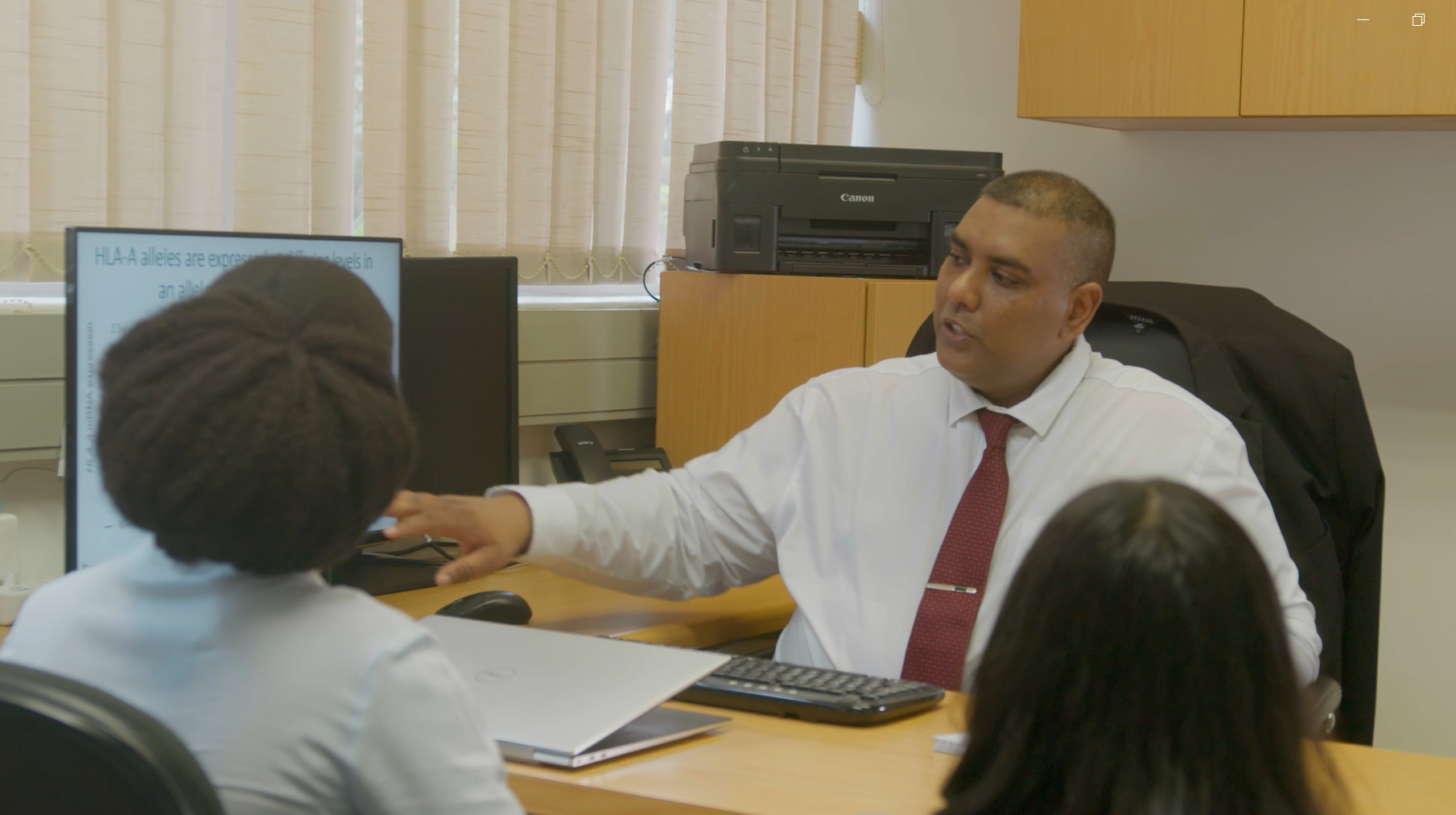(Click the below picture to watch the film)

Image Credit: MGI
With better understanding of HIV, awareness of the stigma and related inequalities has also been on a rise. Every year on Zero HIV Stigma Day (21 July), an observance in honor of Prudence Mabele, the first Black South African woman to publicly share her HIV status, the world is united to take actions against HIV stigma and challenge its impact. With initiatives such as this one by SAMRC and UKZN, more individuals and communities alike are being empowered to move beyond labels and redefine HIV narratives.
The mystery of the HIV elite controller
According to the latest survey by the Human Sciences Research Council, in 2022, there were approximately 7.8 million people afflicted with HIV in South Africa, the highest absolute number of people living with HIV globally. Yet despite having the largest genetic diversity in the world, African human genome sequences represent the lowest of all the human genomes that have been sequenced worldwide. There is a dire need to leverage genomics to back up and scale targeted intervention programs to put more people living with HIV on effective treatment.

Image Credit: MGI
Of particular interest in the global investigations into HIV is “elite controllers” (ECs), a rare group of HIV‐1‐positive individuals whose immune systems can seemingly suppress the infection from developing without taking antiretrovirals (ARVs). For every 200 people living with HIV, around one may be an elite controller (0.5%). In South Africa, with its high rate of HIV infection, the prevalence of ECs also appears to be higher. By “unmasking” the secrets of ECs through research, clues can be revealed and new therapies potentially developed to benefit broader groups of people living with the disease.
The promise of MGI’s genomics technology
In order to identify the polymorphism and mutations within individuals of African descent, and understand how they are associated with HIV disease progression, Dr. Veron Ramsuran, Associate Professor at UKZN, and Prof. Thumbi Ndung'u, Director for Basic & Translational Science at the Africa Health Research Institute, joined hands with SAMRC, MGI and local South African clinics in 2019 to take their 20+ years of work in EC research to the next level using whole genome sequencing (WGS).
“The HIV Host Genome project was started at the same time as we launched SAMRC’s African Genomics Centre in Cape Town with the support from MGI,” said project co-investigator Rizwana Mia, also co-founder of the SAMRC Genomics Centre and Senior Program Manager in Precision Medicine at SAMRC. “The partnership saw MGI putting down a high-throughput sequencing workflow, and assisted us with the specialized scaled infrastructure design in our lab. This was at a time when there was no real infrastructure for large-scale next generation sequencing in Africa.”

Image Credit: MGI
“More importantly, by moving our laboratory workflow to scale, we are hoping to develop genomic research to address this quadruple burden of disease that South Africa faces,” explained Mia. “Our project looks at a unique cohort of patients that have the ability to control the HIV virus to ascertain how disease progresses and the host-directed mechanisms for innate immune control. In addition, we included family sets to help us better understand the relationship between pediatric non-progressors and their parents who are also HIV positive, to uncover and genetic differences that may contribute to host immune control of HIV.”
As part of the project, MGI's highly efficient and advanced DNBSEQä sequencing technology, platforms, and workflow are playing an instrumental role. Relying on DNBSEQ’s high accuracy, quick turnaround time and high cost-effectiveness, researchers are able to generate quality data for analyzing different HIV genotypes and identifying potential immunological mechanisms associated with ECs. Indeed, through collaborative efforts, the team has made significant progress in uncovering crucial genetic insights into the study of ECs.
“We've identified new genes and polymorphism that are playing a role with HIV disease through new data generated from Whole Genome Sequencing,” said Dr. Veron Ramsuran, principal investigator of the HIV Host Genome project. “Traditionally, there is a list of mutations or genes that are known to associate with HIV, yet they are largely based on studies on Caucasian populations. Our HIV research is adding to the general pool of knowledge pertaining to individuals of African descent, which will thereby inform new treatment and new vaccine opportunities.”

Image Credit: MGI
“What's important is also understanding how drugs interact with the individual,” added Ramsuran. “We’ve found in the past that certain polymorphism is associated with drug metabolism in genes. Building on this understanding of drugs in combination with the genetics of the individual, we can develop prediction tools to inform clinicians on drug type or dosage depending on the presence of the polymorphism to facilitate a more rapid metabolism of the drug.”
The key to understanding South African human genomes
Through infrastructure and technical support from MGI, SAMRC has been refining the science of genomics for personalized medicine, besides HIV, to benefit Africa's diverse gene pool. Notably, the establishment of the SAMRC Genomics Centre in 2019, the first high-throughput genome sequencing facility in the continent, has enhanced South Africa’s ability to sequence, analyze and store human genomes, unlocking a new level of cutting-edge research.
The cooperation has also seen SAMRC sequencing the very first plant species for the African BioGenome Project in 2023 using MGI's DNBSEQ-G400* versatile benchtop sequencer and single-tube long fragment read (stLFR) technology. By empowering applications of their platforms in agrigenomics, MGI has also been contributing to the improvement of biodiversity protection, food security and environmental health across Africa.
Encouragingly, investigations into Africa’s diseases will continue beyond this point. The HIV Host Genome project has lain the groundwork for the ambitious National 110K Human Genome Project. This large-scale population study will involve 110,000 participants from the South African population, aiming to understand more about of their genomic diversity, address various health challenges, and pave the way for personalized medicine in the country. Furthermore, the data collected will be incorporated into a national population database, enhancing research outcomes and deepening disease understanding for Africa.
Given South Africa’s diverse population, limited human genomics data and significant healthcare burden from diseases such as HIV, understanding pathogenesis and inherent mutations is important for implementing targeted treatments and public health programs. With its lower sequencing cost, high quality data, and efficient all-in-one workflows, MGI will continue to drive progress in studying rare HIV phenotypes, which holds great promise in advancing the development of targeted interventions and cures– not only for HIV – but many other diseases.
“Looking at the genetic variation and its impact on HIV is a gamechanger, because it will shed light on some of the best immune responses that can be generated against the HIV virus,” stated Prof. Thumbi Ndung'u, principal investigator of several of the project’s cohort studies. “And actually, this knowledge will be widely applicable and could have an impact on other diseases - infectious and non-infectious – as well as their drug interventions. It will make sure that Africans, just like everybody else, are at the center of drug and vaccine development.”

Image Credit: MGI
In June this year, MGI introduced its HIV-1 genotyping and drug resistance detection package on its portable low throughput DNBSEQ-E25, and mid-low throughput DNBSEQ-G99 sequencers. This package unitizes deep sequencing to detect low-frequency mutation associated with drug resistance. When combined with MGI’s automated sample preparation systems and HIV-Genome Pro software, users benefit from a streamlined tool capable of rapid and accurate detection of HIV-1, drug resistance analysis, genome assembly, mutation detection, and evolutionary tracing.
The process is highly efficient with DNBSEQ-E25 to process up to 16 samples from RNA to report in 28.5 hours with the, while DNBSEQ-G99 can handle up to 120 samples in just 24 hours.
For more details on this groundbreaking HIV research project, check out this in-depth video created in collaboration with Nature Research Custom Media.